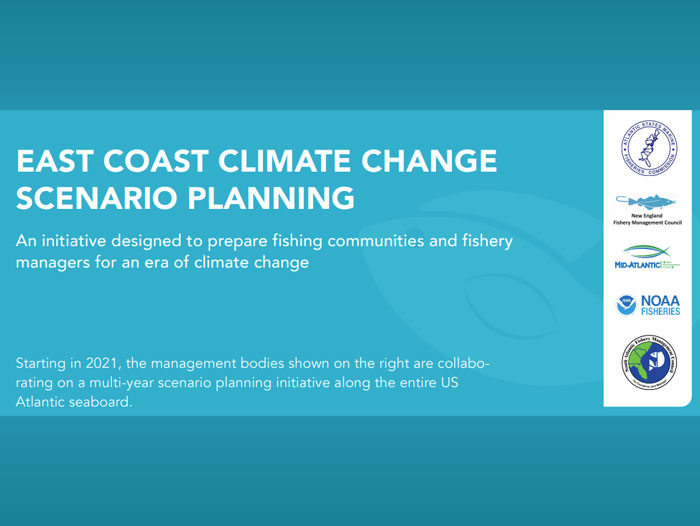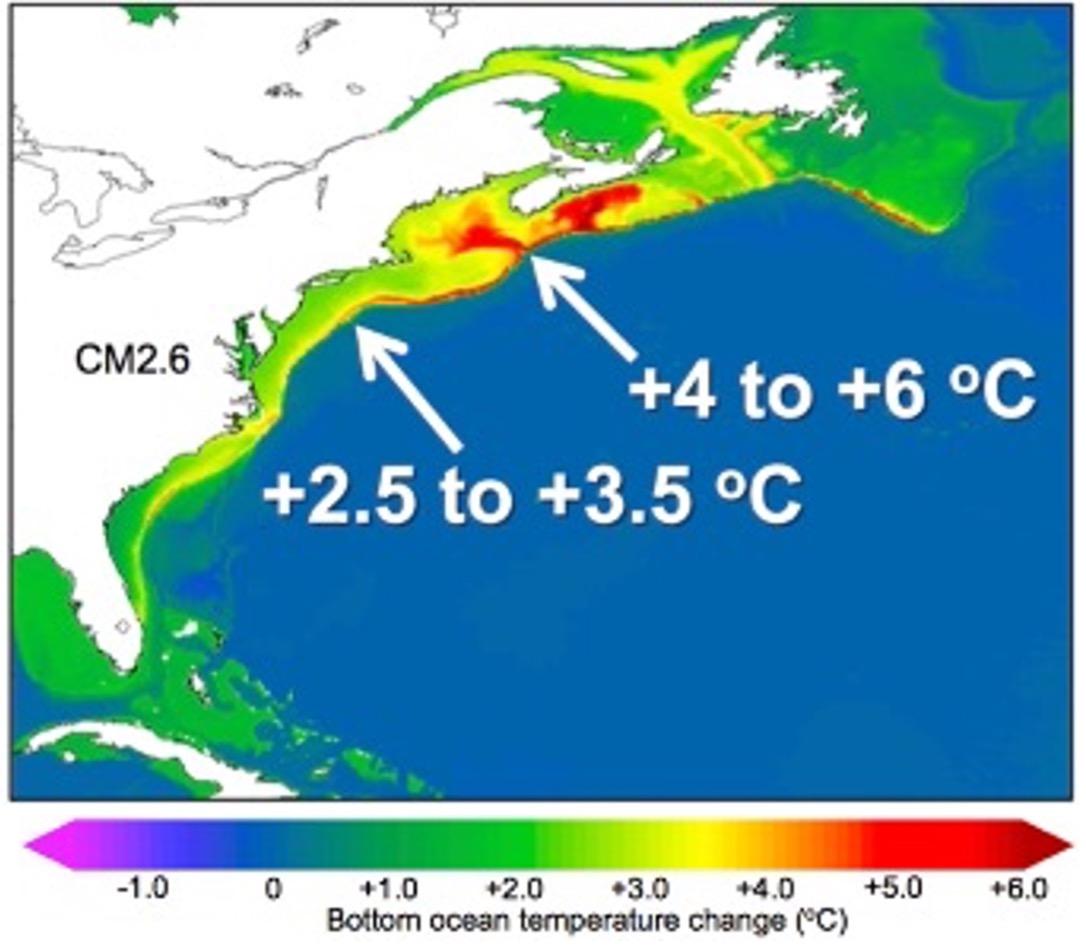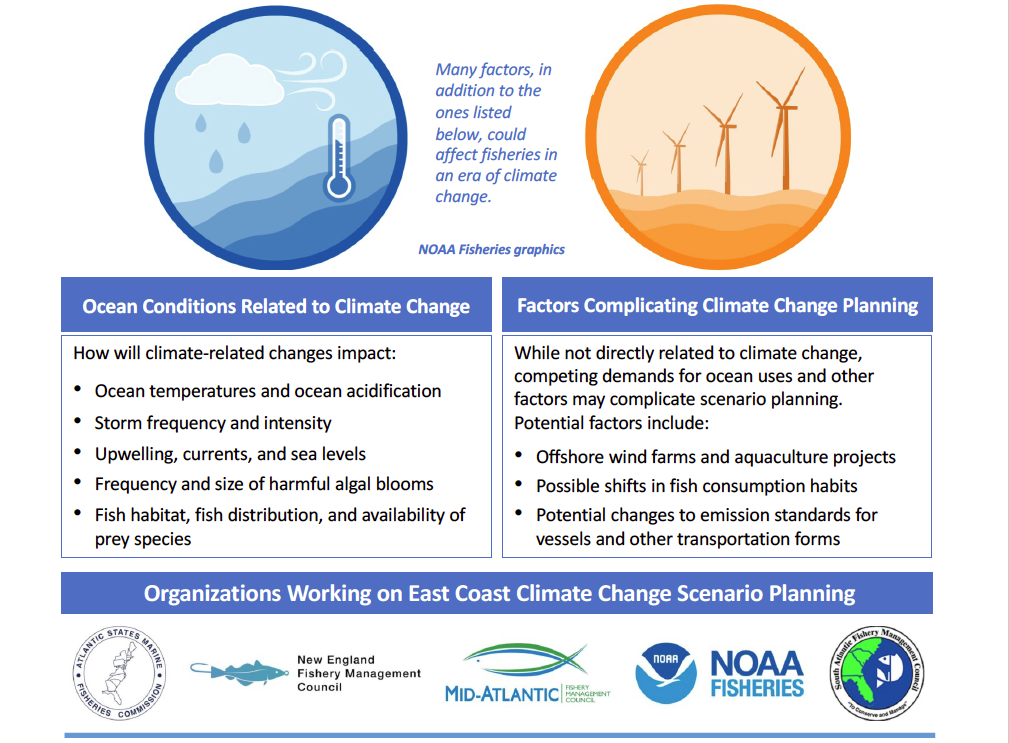Climate Change Scenario Planning: Input Needed to Prepare for an Era of Uncertainty in Ocean Conditions and Fisheries
August 9, 2021 | 7 min to read

On the East Coast of the U.S., some species of fish are already experiencing climate-related shifts in distribution, abundance, and productivity. No one knows for sure what the future holds, but a continuation or acceleration of climate change has the potential to strain our existing fishery management system and alter the way fishermen, scientists, and the public interact with the marine environment.
To begin preparing for this new era of uncertainty, management bodies along the entire Atlantic seaboard have teamed up to launch a project called East Coast Climate Change Scenario Planning. Scenario planning is a way of exploring how fishery management may need to evolve over the next few decades as climate change becomes a bigger issue. Here is the introductory brochure.
Stakeholder Input Needed
Stakeholder input is key for effective scenario planning. An initiative has been organized by a Core Team of representatives from the New England, Mid-Atlantic, and South Atlantic Fishery Management Councils, the Atlantic States Marine Fisheries Commission (ASMFC), and NOAA Fisheries. The team has lined up three kick-off webinars to introduce stakeholders to the overall initiative, explain the benefits of participating in the process, outline additional ways to get involved, and begin collecting stakeholder input.
Register now!
Stakeholder Webinars
· 4:00 p.m.- 5:30 p.m.
· 6:00 p.m. – 7:30 p.m.
· 10:00 a.m. – 11:30 a.m.
An online questionnaire is under development to serve as an additional tool to collect input. Keep tabs on the Scenario Planning webpage for updates and a link to the questionnaire.

Global climate models can project how ocean conditions will change over time. The figure above shows how ocean bottom temperatures are projected to increase, especially north of Cape Hatteras, NC, by the 2060s to 2080s under a scenario where carbon dioxide (CO2) increases by 1% per year and doubles after 70 years, representing a “high CO2 emissions” scenario.
Next Steps and Expected Outcomes
Over the next year, scenario planning organizations, guided by the Northeast Region Coordinating Council (NRCC), will bring together fishery participants, fishery managers, researchers, and other stakeholders to discuss climate change issues. The intent is to emerge with ideas and recommendations for how fishery management can adapt to climate change. Nothing will happen immediately. Managers will need to discuss the recommendations from the scenario planning project and figure out next steps. This initiative is an exercise in preparing for the future under a variety of “what if” scenarios.

